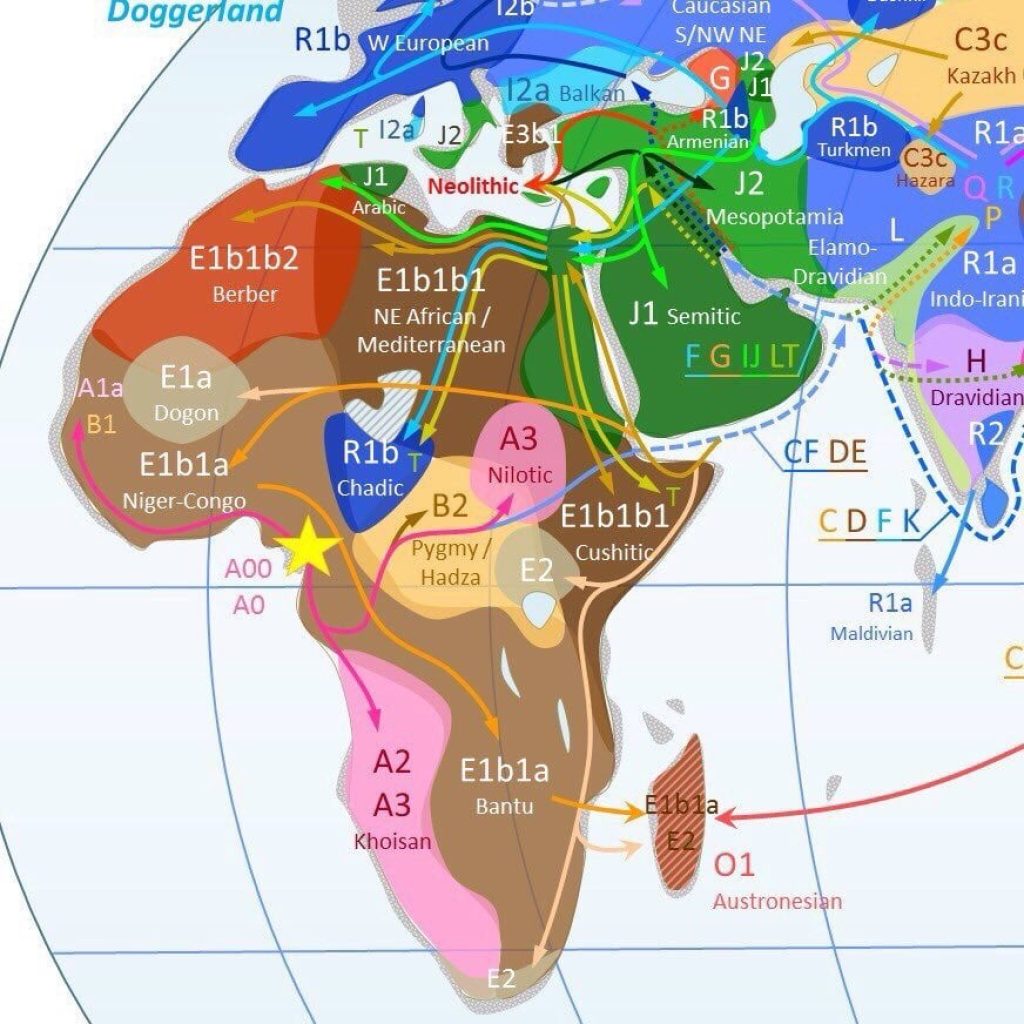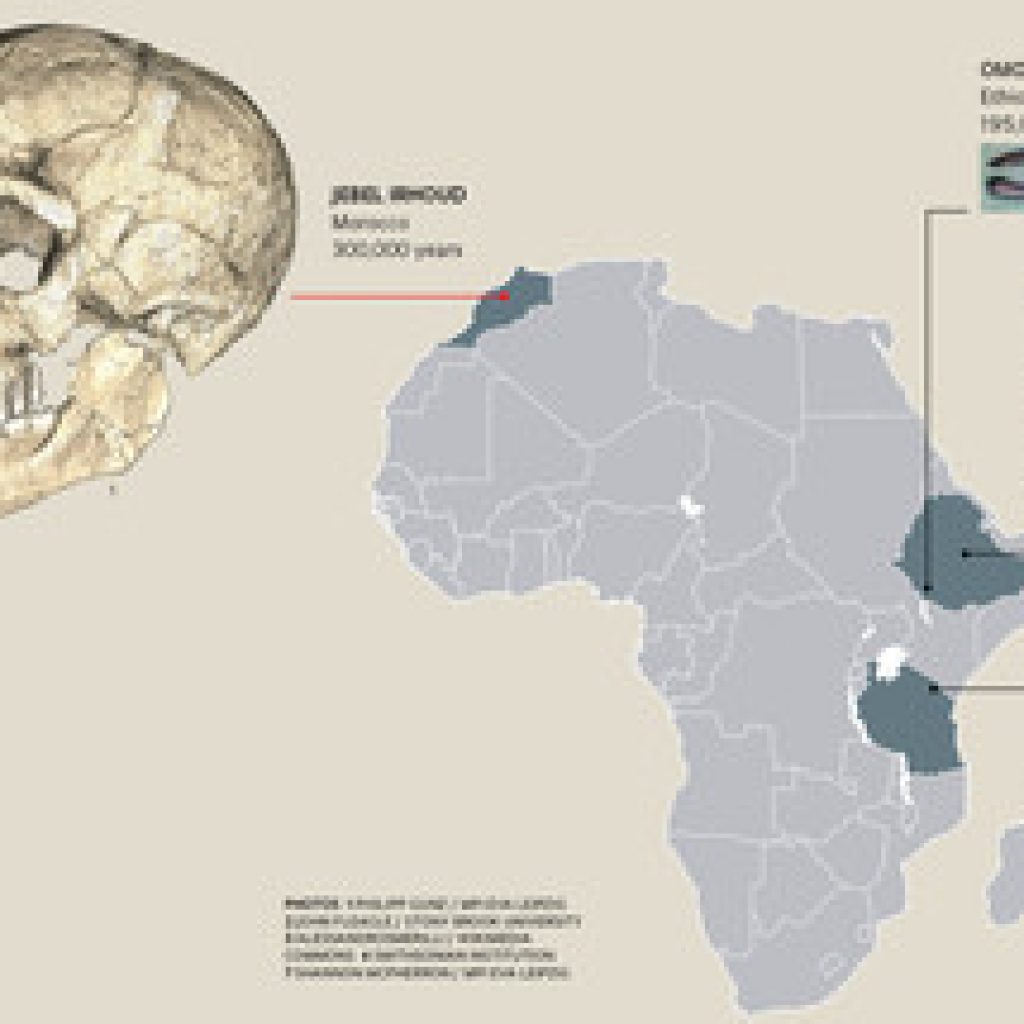Africa holds a special place in human history as the birthplace of our species. From groundbreaking fossil discoveries to its unique role in human evolution, the continent has offered unparalleled insights into our origins. This article explores why Africa is recognized as the “Cradle of Mankind” and highlights key findings that reveal our ancient past.
Key Reasons Africa Is the Cradle of Mankind
Olduvai Gorge – The Gateway to Human Evolution
The Olduvai Gorge in Tanzania provides a 2-million-year record of human evolution. The discovery of Homo habilis fossils here revealed our tool-making ancestors and offered crucial insights into early human behavior.

Earliest Fossil Evidence of Humanity
Fossils such as Australopithecus africanus (Taung Child) and Paranthropus boisei were uncovered in Africa, confirming that human ancestors walked upright as early as 3.6 million years ago. These discoveries have reshaped our understanding of human evolution.
The Longest Archaeological Record
Africa preserves the most continuous evidence of stone-tool use, showcasing the technological progress of our ancestors over millennia. The continent’s archaeological sites, from the Great Rift Valley to South Africa’s Cradle of Humankind, provide an unmatched glimpse into human history.
Human DNA Traces Back to Africa

Modern genetic studies reveal that the mitochondrial DNA of all humans traces back to a group that lived in Africa approximately 200,000 years ago. This genetic evidence further supports Africa’s role as the origin of modern humans.
Diverse Ecosystems Fostered Evolution
Africa’s unique environments, from vast savannas to dense rainforests, have shaped the physical and behavioral evolution of early humans. The variety of habitats in Africa allowed early hominins to adapt and evolve in ways that set the stage for the development of modern humans.
Out of Africa Theory
Fossils and genetic evidence show that humans migrated from Africa around 60,000 years ago, populating the rest of the world. This migration was pivotal in the global spread of Homo sapiens and the eventual colonization of every continent.
Oldest Homo sapiens Fossils
Fossils of Homo sapiens discovered in Morocco date back 300,000 years, making them the oldest known specimens of our species. These fossils provide crucial evidence of early human development in Africa.
Pioneering Discoveries by the Leakeys
Mary and Louis Leakey’s work in East Africa revolutionized paleoanthropology, leading to the identification of several key hominin species, including Zinjanthropus boisei and Homo habilis. Their discoveries have greatly shaped our understanding of human evolution.
Africa’s Role in Understanding Evolution
Sites like the Cradle of Humankind in South Africa continue to yield fossils that bridge the evolutionary gap between apes and humans. Discoveries in this region continue to provide invaluable insights into the evolution of early human ancestors.
Preservation of Ancient History
The continent’s geology has uniquely preserved fossils, providing a detailed narrative of human ancestry unmatched by any other region. Africa’s diverse geological features, from volcanic eruptions to dry deserts, have allowed fossils to be preserved in remarkable detail.
Other Key African Contributions to Human Evolution
Ethiopia: The discovery of Australopithecus afarensis (Lucy) in the Afar region in 1974 provided one of the most important fossil finds in history. Lucy, dating to about 3.2 million years ago, was one of the earliest hominins that displayed evidence of walking upright.

Kenya: The Koobi Fora site near Lake Turkana has produced some of the most important fossil evidence, including early hominins and evidence of tool use, helping to shed light on the development of early humans.
Chad: In 2001, the discovery of Sahelanthropus tchadensis in Chad revealed one of the oldest known hominins, at around 7 million years old, offering key insights into the evolution of the human lineage.
Morocco: The discovery of Homo sapiens fossils in Morocco, dating back to 300,000 years ago, provided evidence that modern humans emerged earlier than previously thought, cementing Africa’s role as the birthplace of our species.
Uganda: The discovery of fossils in Uganda, such as those at the Kaniyo-Pabidi site, has added to our understanding of early human ancestors, particularly those belonging to the Australopithecus genus.
From its ancient fossil discoveries to its rich biodiversity and unique environments, Africa’s role in human evolution is unparalleled. The continent remains the cornerstone of paleoanthropology, offering critical insights into the origins of humankind. As scientists continue to uncover more evidence from across the continent, Africa’s position as the “Cradle of Mankind” is more firmly established, reminding us all of our shared origins and the deep history we share with this remarkable continent.


